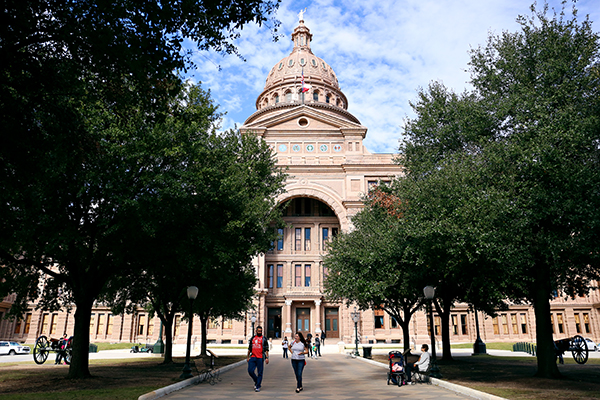Senate passes bill that could disband DEI offices at public universities
April 20, 2023
The Texas Senate passed a bill on Wednesday that directs public universities to cease operations of diversity, equity and inclusion offices and practices amid some resistance from collegiate students and faculty.
The bill now goes to the House of Representatives, where if passed, would then require approval from Gov. Greg Abbott to become law. As of this time, there is no confirmation of when the bill is to be voted on in the House.
“Texas hosts world class institutions of higher education that are as diverse as the state itself,” bill author state Sen. Brandon Creighton said in its statement of intent. “However, certain diversity, equity and inclusion practices are polarizing and work against the goal of inclusion.”
SB 17 is an amendment to “public higher education reform and authorizes administrative penalties” following the creation of DEI offices or roles. According to the bill, it would prohibit: requiring an enrolled student, employee or admissions applicant to provide ideological oaths or statements, including endorsement of an ideology that promotes the differential treatment based on race, color or ethnicity; DEI offices and employees; requiring an enrolled student, employee or an admissions applicant to participate in mandatory training on diversity, equity, inclusion, bias, oppression or gender identity.
Adam Kissel, a fellow for higher education reform at the Heritage Foundation, gave testimony at the Texas Senate Higher Education subcommittee on April 6 in support of the bill, saying DEI practices reduce individual identities.
“The fundamental mistake of DEI is to categorize people by a group identity rather than as unique individuals — diversity programs use identity as a proxy for the actual viewpoint diversity that makes colleges flourish,” Kissel said. “We are here today because the people of Texas no longer trust public colleges to promote equality.”
Christine Julien, associate dean for DEI at the Cockrell School of Engineering, and Darren Kelly, associate vice president at the Division of Diversity and Community Engagement, spoke during Tuesday’s committee testimony on the bill.
Both Julien and Kelly confirmed the University does not require mandatory DEI training and does not exclude any racial or ethnic demographic from DEI initiatives, but does provide additional support to underrepresented and in-need students.
The bill states it would not restrict the voices and advocacy for multicultural students, but according to testimony, some from the University worry about the “chilling effect,” or restriction of expression, it would have on campuses.
According to Texas Students for DEI, an organization formed to protect DEI in higher education following the original proposition of SB 17, the bill would affect a multitude of programs at UT, such as multicultural centers, affinity groups supporting various cultures, and identities and identity-centered courses, majors and departments.
Law student Samuel Jefferson, son of the first Black chief justice of the Texas Supreme Court, testified in opposition to the bill during the April 6 meeting as well.
“These programs are for veterans, disabled students, first-generation Americans, foreign exchange students, international students and socioeconomically disadvantaged students,” Jefferson said during testimony. “DEI programs inspire and reassure students of all backgrounds that they are capable of anything they set their minds to.”



